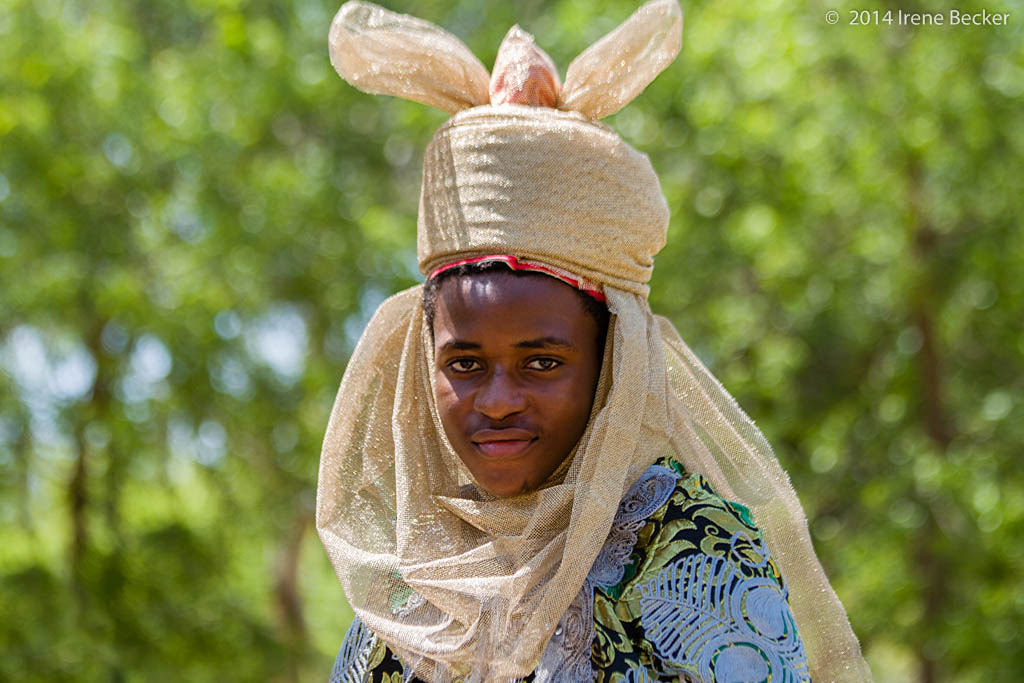Once upon a time, a certain family lived in a Northern village called Faskari. The family comprised of the head, his wife Aminat and their son Dauda. Theirs was a small farming village where life was simple and everyone was happy. Unfortunately, the family’s happiness was cut short following the sudden and untimely death of their head. To worsen the issue, some men in the village (who wished to covet the dead man’s land) conspired with some village elders to falsely accuse the dead man before the king, calling him a witch. This caused Aminat and her son Dauda to be ostracized from the village by the king.
Dauda and Aminat suffered greatly as a result of this. They sojourned across the wilderness as they looked for a place to stay. Luckily for them, they eventually came to a village very far away from theirs where they were arrested and brought before the king for interrogation. Dauda and his mother knelt before the king and narrated their sad story and the king had compassion on them.

Aminat was a very pretty woman and this made the king to immediately take interest in her. He (the king) made provision for their accommodation and also provided a field to them so they can cultivate crops. He also gave them some livestock. Meanwhile, within a few months of their arrival, the king made his intentions towards Aminat known. The woman reciprocated the king’s proposal and got married to him. Before long, she conceived and birthed a son to the king, something the king had wished for in a long time as all his other wives were unable to bear him any male children. Instantly, Aminat became the king’s favorite wife.
Ten years later, the king died and according to his wishes, a dice should be cast among his four wives and any of them whom the dice favoured should rule the village until his son grew up enough to rule. Surprisingly, when the dice was cast, it fell in favor of Aminat. She subsequently ruled the village justly, treating his co-wives and step-children kindly. The village prospered greatly under her rule and everyone was happy. However, her wisdom was soon put to the test…
Around the time Aminat was queen, Faskari was ravaged by famine. The people suffered hunger and then some bandits from Faskari stormed the village where Queen Aminat ruled, killing a farmer and his family and stealing their farm produces and money. Queen Aminat was enraged by this development and had quickly gotten her army ready for a battle. She knew she could easily defeat Faskari because she was at a more advantaged position to win the war considering how impoverished and ravaged by the famine the Faskarians were. Moreover, she was determined to punish them for what they did to her and Dauda. So she commanded her army to attack the village and raze it to the ground. Nothing was going to change her resolve; she determined.
But this decision didn’t go down well with Dauda. He wanted the Faskari people and their king to be forgiven because according to him, it would be nothing but wickedness to have the entire town of Faskari destroyed just because of vengeance. He tried to talk his mother out of her plan but she refused to listen to him. Consequently, Dauda came up with a brilliant plan to thwart the proposed battle. On the day the army was supposed to strike Faskari, Dauda went to the barn, took a horse and rode to Faskari. From there, he sent his childhood friend Tanko to friend to his mother with the message that he (Dauda) was at Faskari and was ready to die with the Faskarians unless she called off the proposed battle
It was a very risky plan yet it worked because the messenger was able to deliver the message to queen Aminat who made haste to stop her army from attacking Faskari. As a matter of fact, Dauda made his mother decide to help the people of Faskari instead of besieging them. She extended her generosity to them, saddling her royal horses with foods and sending them to Faskari. But she did request for the bandits who killed the farmer and his family to be apprehended and punished appropriately, a request which the Faskari king obeyed. He also tendered his apologies for the unjust way he treated Queen Aminat and her son. Most importantly, he pledged a cordial relationship between his kingdom and queen Aminat’s. And that was how the kind-hearted Hausa Prince averted what would have been a disastrous battle.


